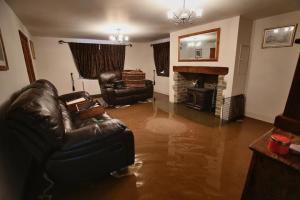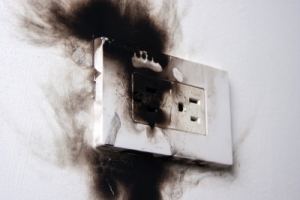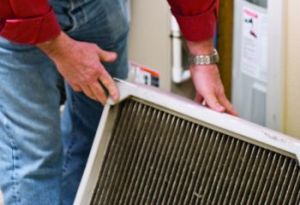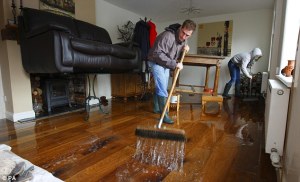BOOM SPLASH ZAP! These are sounds we hope to never hear in our homes. Damage costs place the biggest strain on a home owner’s budget outside of the mortgage. Here are some hazards that, with proper care and savings in place, can potentially be prevented.
When buying a home it can be easy to minimize the risk of damages that could occur down the road after the excitement of ownership fades. Below are some examples of risks to be aware of, either for your current home or when purchasing a home. Insurance does not cover some typical losses and deductibles have gone through the roof — considering the potential costs, it is wise to consider the risks and be prepared when expensive home repairs happen —- usually at the most inconvenient times.
Water Damage
A lot of us have lived through home water damage or at least know people that have lived through this mess. Water can sneak in from pooling on the roof, through pool roof shingles, basement windows, and failed seals on windows or doors. These types of incidents involve outside water entering the home — most home owner insurance policies do not cover damages if the water entered from outside the home. These types of risks deserve extra attention if for no other reason than repair costs. Water damage also occurs where the source is inside the house such as a broken washer hose, a leaking water connection to the refrigerator, dishwasher leaks, etc. While home owners insurance generally will cover these types of events, the deductibles are much higher. Whatever the cause of water damage, it leaves you with a big mess and lots of issues that need to be addressed immediately. Water damage is among the most frustrating of home emergencies — most if not all of the risks can be mitigated if the home owner regularly inspects and maintains the home.
 Electrical Problems
Electrical Problems
There are many reasons why you could have problems with home electrical, from poor do-it-yourself projects done by a previous owner to outdated materials in older homes. It is always recommended you have a Home Inspector or at least a qualified electrician inspect the electrical so you will know if there are any potential issues before moving in. If issues are identified before the purchase, you can usually make the repairs a part of the transaction. If caught after, it would be wise to use a qualified electrician to do the repair to avoid future issues and if it fails again, most electricians will warranty their work.
HVAC Systems
A lot of people miss this one but an old poorly kept heating or air conditioning system could be costing you a chunk of your cash every month. If not taken care of regularly, these systems become inefficient at heating or cooling your home raising the utility bills and causing excess wear and tear on the systems themselves. Subpar insulation directly affects the efficiencies of HVAC systems. Again, a home inspector or an HVAC technician should look for old and poorly performing HVACs. If issues are identified before the purchase, you can usually make the repairs a part of the transaction.
Plumbing
No, you usually don’t need a qualified toilet technician or plumber to come fix a small toilet tank problem. Those are easy do-it-yourself projects. But plumbing extends beyond the toilet, tub/shower and sink. Major plumbing issues are not simple fixes. If a water line begins leaking beneath the house, it could damage the foundation and even lead to the first category listed and create water damage. If installing a new toilet can be tricky so be cautious about doing it yourself. Consistent servicing of your water heater by a qualified plumber is often forgotten or taken for granted. As the “Mythbusters” television show has demonstrated, a neglected water heater can not only lead to serious repair costs but can also be dangerous.
As one of the hosts, Jamie so aptly says concerning the water heater experiment, “Did you know what was lurking in your basement?” Making sure all things related to plumbing are regularly maintained can save money and lower stress
What To Take From This
The bottom line is in order to keep your home safe and in peak condition, it’s always wise to assess damage risks and perform regular maintenance that can prevent damages from occurring in the first place. Using a qualified technician can add to maintenance costs but may well save money in the long run. Remember, home owners insurance does not cover every calamity and the issues it does cover, come with much higher deductibles than in years past. Most people have savings for an emergency but should ensure it is sufficient to cover major home repairs when they occur. Without an emergency fund the financial stress will add to the normal stresses of dealing with emergencies. The goal of any homeowner is to be comfortable, safe and to enjoy their home without worries of costly repairs. A sufficient emergency fund will help keep you smiling even when a nasty problem shows up at your door!

